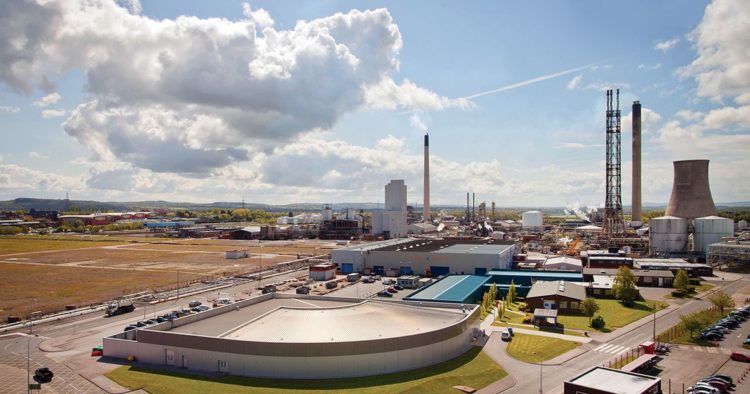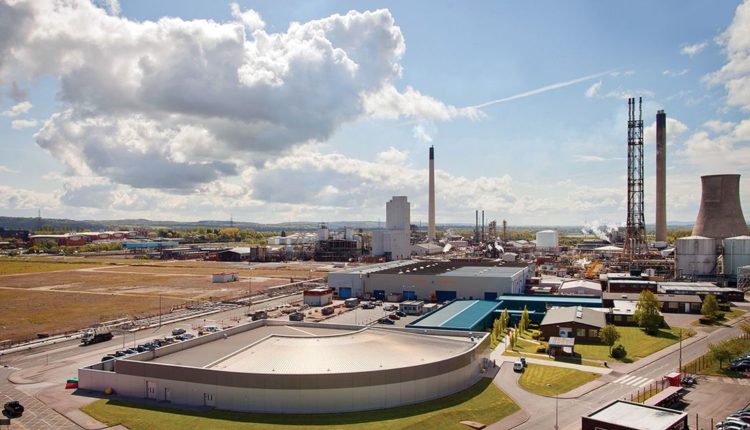Oil windfall tax ‘could harm investment’
Oil firms such as Essar Oil UK on the banks of the Mersey will contribute £7.8bn in taxes this year and a proposed windfall tax on the sector could harm investment, it has been claimed. Tony McDonough reports

A windfall tax on the UK oil sector could put investment projects at risk, an industry body is warning.
According to Offshore Energies UK (OEUK), the UK’s oil and gas sector will pay around £7.8bn in tax to the UK Exchequer this year. Thus represents more than 1% of the country’s total tax revenues.
OEUK cites predictions by the Office for Budget Responsibility (OBR), which estimates the industry’s tax payments for 2022-23 will be equivalent to about £279 per UK household.
Energy firms are enjoying bumper profits due to soaring energy prices. However, the UK is also facing a cost of living crisis, in large part caused by fast-rising energy bills. Research published yesterday by Loughborough University revealed the cost of basic goods and services for an average two-child household had risen by £400 a month this year.
And with inflation now running at a 40-year high of 9% people across the country are facing a further squeeze on their incomes. Pressure is growing on the Government to introduce a one-off windfall tax on energy sector profits to help ease the burden on struggling households.
However, OEUK says energy companies have only just recovered from plummeting demand and prices during the COVID-19 pandemic which saw energy firms report multi-billion-pound losses, slashing tax revenues.
Essar Oil UK (EOUK) employs more than 800 people at its giant Stanlow oil refinery at Ellesmere Port, close to the River Mersey. Stanlow is the second-biggest refinery in the UK and supplies 16% of the UK’s road fuels. It also supports thousands of jobs in the wider supply chain.
During the pandemic it was reported that plummeting demand had threatened the future of the business. Since acquiring Stanlow from Shell in 2011, Indian-owned Essar has invested more than £700m in the EOUK business.
However, in its financial results for the year to September 30, 2021, EOUK revealed a pre-tax loss for the 12-month period of $321m (£168m) against a loss of $221m in the previous year. It reported improved revenues of $7.3bn (£5.6bn).
In January LBN reported the company had successfully secured more than £800m in new financing to shore up its balance sheet. However, the accounts stated it was looking to secure further funding and, in April, the company said it was still seeking a further $300m (£230m) in new financing after auditors warned about the financial health of the business.
According to OEUK, the oil sector and its supply chains employ almost 200,000 people across the UK. Offshore operators pay a tax rate of 40% – the highest rate of any industry. Over the past 50 years the industry has paid more than £375bn in production.
This tax contribution comes on top of research conducted by OEUK in 2021 which found that the oil and gas industry contributes £1bn GVA to the economy of North West England, providing jobs for 14,600 people across the region.
Deirdre Michie, OEUK’s chief executive, said: “We are deeply concerned about the difficult circumstances facing UK consumers and our industry is committed to supporting the nation now and building a low-carbon future.
“We are proud that we are able to help by contributing a predicted £7.8bn in UK taxes this year alone. Those payments, equivalent to £279 per home, can help the Government soften the pressure for households. This year is not a one-off. Between 2021 and 2026-27 the OBR predicts our industry will pay around £23bn in UK tax.
“Our industry and its supply chains also support 195,000 workers – whose skills are going to be essential in building the low-carbon and renewable energy systems that will enable the UK to reach net zero.
“These are huge long-term investments with many risks, especially around swings in the prices of gas and oil. The downturn in 2020/21, for example, saw many of our members incurring significant losses.
“That is why our industry puts a premium on stability and predictability in the ways it is taxed and regulated. Tax increases make it more expensive to borrow money for big projects – and that can make them unviable.
“It’s why periods of fiscal stability are associated with increased investment, whereas sudden tax increases are often followed by decreased investment.”

